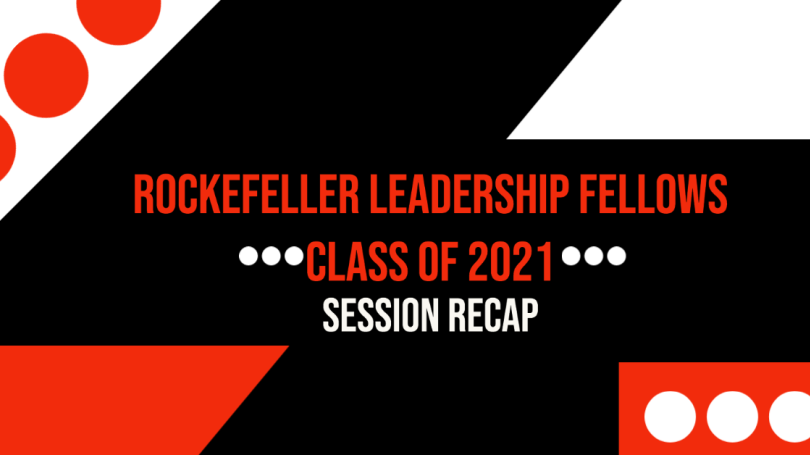
- Public Policy
- Leadership
- Funding
- News & Events
- About the Center
Back to Top Nav
Back to Top Nav
Back to Top Nav
Back to Top Nav
Dartmouth College alumnus and the speaker for Session 8 of the Rockefeller Leadership Fellows program Professor Peter Robbie ‘69 opened the session with an award-winning Nike advert titled “Write the Future.” The video depicts a number of famous soccer players having widespread impacts around the world as they play their sport. To Professor Robbie, the takeaway of the ad is simple: leaders lead the world into the future with playfulness and creativity. The crux of Professor Robbie’s presentation mirrored his initial thoughts: Leading creative innovation is a key leadership challenge. Because we are living in a creative economy, it is critical that future leaders like the Fellows learn to facilitate creative collaboration.
Design thinking can be easily adapted to leadership strategies. Observation is the first stage of design thinking and requires skills that can readily translate to leadership scenarios. A good leader can observe a situation and then define the problem. As Professor Robbie told the Fellows, when analysis leads to definition, previously impossible solutions become possible. Creative ideation is a skill of the best leaders. This lesson overlaps with Eugene Korsunskiy’s session early in the term, when he encouraged the Fellows to recognize their self-imposed limitations and break out of thinking in schemas. Similarly, Professor Robbie recommended not being afraid of the first, or wildest idea that is first suggested. In his words, it is easier to tone down an idea than it is to pump an idea up.
After introducing the Fellows to a work of Stanford students from some years ago when they imagined what Stanford would look like in 2025, Professor Robbie asked the Fellows to complete a similar exercise. The prompt was to envision how Dartmouth might make the most from living in a trusting community with people from all over the world. The exercise required the Fellows to tolerate ambiguity and believe in the power of envisioning. As leaders, Fellows must be comfortable operating in spaces of uncertainty and offering a vision crafted from minimal information. Applying the design thinking process to the myriad of problems that leaders face will enable to Fellows to be stronger, more creative, and better leaders overall.
-Written by Maria Smith-Lopez, Class of 2021 Rockefeller Leadership Fellow and Student Program Assistant
As Rockefeller Leadership Fellows, seniors gain a better understanding of the qualities and responsibilities expected of leaders. As Fellows take part in the workshops, discussions, and team-building exercises, they examine their skills, qualities, and attributes as leaders and analyze how these influence teamwork and achieving goals.